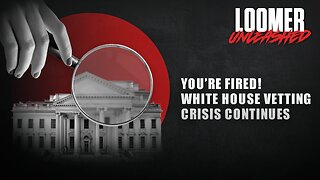Premium Only Content

u/peruvian_bull’s “Hyperinflation is Coming-The Dollar Endgame - At World’s End” Short-Lotek Wealth
u/peruvian_bull’s “Hyperinflation is Coming- The Dollar Endgame - At World’s End” Short - Lotek Wealth - 500 Hindu Squat BONUS -
HYPERINFLATION AND HINDU SQUATS
https://docs.google.com/document/d/1552Gu7F2cJV5Bgw93ZGgCONXeenPdjKBbhbUs6shg6s/edit
https://home.treasury.gov/data/troubled-assets-relief-program
https://www.investopedia.com/terms/q/quantitative-easing.asp
The Weimar Republic Hyperinflation
On June 28th, 1914, Austrian Archduke Franz Ferdinand and his wife Sophie were assassinated by a Bosnian Serb nationalist named Gavrilo Princep. The assassination set off a rapid chain of events, as Austria-Hungary immediately blamed the Serbian government for the attack, and a complex web of alliances and treaties dragged country after country into the carnage.
https://www.reddit.com/r/MilitaryPorn/comments/4ia10g/colorized_by_me_archduke_franz_ferdinand_of/
https://dingeengoete.blogspot.com/2015/05/this-day-in-world-war-1-history-may-26.html
https://www.thoughtco.com/assassination-of-archduke-franz-ferdinand-p2-1222038
https://dj980907.weebly.com/world-war-i.html
https://julycrisis.weebly.com/timeline-of-the-events.html
https://www.thinglink.com/scene/706159995594473472
https://en.wikipedia.org/w/index.php?title=Causes_of_World_War_I&level=1
World War I was one of the great watersheds of 20th century geopolitical history. It led to the fall of four great imperial dynasties (Germany, Russia, Austria-Hungary, and Turkey), resulted in the Bolshevik Revolution in Russia, and, in its destabilization of European society, laid the groundwork for World War II and the Weimar Hyperinflation.
The German inflation of 1914–1923 had an inconspicuous beginning, a creeping rate of one to two percent. On the first day of the war, the German Reichsbank, like the other central banks of the belligerent powers, suspended redeemability of its notes in order to prevent a run on its gold reserves. (Similar to what Nixon would do for the US several decades later on Aug. 15th, 1971, as discussed in Part 1).
The German mark had traded around a normal range of 20 marks to the Pound during the early stages of the war, and before that was as low as 5. It ended December 1918 at 43 marks to the Pound.
The U.S. returned to the gold standard in 1919, and other European countries and Japan reinstated the gold parity a couple years later.
Germany did not.
In January 1919, 30 nations attended- peace terms essentially were written by the leaders of the United Kingdom, France and the United States, who along with Italy, formed the “Big Four” that dominated the proceedings met at Versailles.
June 17, the Allies gave Germany five days to decide or have the war resume. Germany’s representatives had no real choice but to accept the terms, and thus assented to the “diktat”.
https://historycorner1.blogspot.com/2012/05/treaty-of-versailles-main-terms-german.html
Under the terms of Article 231 of the Treaty, the Germans accepted full responsibility for the war and the liability to pay reparations to the Allies, in an amount to be determined by a Reparations Commission. This last provision would prove to be the most catastrophic for Germany. The reparations figure was hotly contested by all parties- it began as a $5 billion payment in 1919, then $9 billion, and then as the war costs continued to be accounted for, ballooned to $33 billion in 1921 ((all figures in $ value of debt at that time, not adjusted for inflation)). The victors elected to hoist every cost, that of healthcare of wounded French soldiers, of lost Belgian horses, of pensions for British railway workers, and more- onto the shoulders of the German State.
Famous British economist John Maynard Keynes understood that a debt of this size was essentially unpayable, and further antagonized the German people against the Allies- “I believe that the campaign for securing out of Germany the general costs of the war was one of the most serious acts of political unwisdom for which our statesmen have ever been responsible,” he wrote in 1920.
https://graphics.wsj.com/100-legacies-from-world-war-1/migration-in-Europe
https://www.nytimes.com/2016/12/09/books/review/vanquished-robert-gerwarth.html?partner=IFTTT
The Nazi party, unknown to most before 1922, exploded in popularity. On September 2, 1923, 100,000 demonstrators gathered for a rally at Nuremburg, where Hitler stood and launched a virulent attack upon the government, which was about to surrender Germany’s honour to France. Within a week, sometimes speaking 5 or 6 times a day, Hitler was calling for the installation of a national dictatorship.
-
 LIVE
LIVE
Laura Loomer
2 hours agoEP136: YOU'RE FIRED! White House Vetting Crisis Continues
605 watching -
 LIVE
LIVE
SpartakusLIVE
2 hours agoDuos w/ @GloryJean || #1 Masculine Muscle MASS sears YOUR retinas with MIND BENDING content
374 watching -
 8:07
8:07
MattMorseTV
2 hours ago $0.13 earnedTrump just LOWERED PRICES by 75 PERCENT.
4317 -
 LIVE
LIVE
Misfit Electronic Gaming
5 hours ago"LIVE" "Blind Descent' +"Dollhouse of Dead" Playtest 10 Followers till we hit 1000! We CAN do this!
11 watching -
 21:53
21:53
Glenn Greenwald
4 hours agoMichael Tracey on the Street: What Do People Think of the Epstein Case?
82.6K47 -
 LIVE
LIVE
megimu32
1 hour agoOTS: Board Games Gone Wild! The Loud, Weird & Chaotic Games That Raised Us
130 watching -
 LIVE
LIVE
DamnDanieI
1 hour agoKill First, Loot Later – OTG Live
255 watching -
 56:41
56:41
Donald Trump Jr.
6 hours agoLies, Leaks, and Lawfare: Censorship Corruption Exposed | TRIGGERED Ep.263
112K103 -
 LIVE
LIVE
Precision Rifle Network
3 hours agoS4E25 Guns & Grub - Rex Is Back, I shot the 6.5PRC finally...
37 watching -
 LIVE
LIVE
rhywyn
52 minutes agoうつ
42 watching